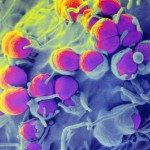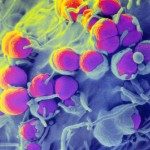Link to Pubmed [PMID] – 17485512
J. Exp. Med. 2007 May;204(5):1107-18
Newborns and infants are highly susceptible to viral and bacterial infections, but the underlying mechanism remains poorly understood. We show that neonatal B cells effectively control the production of proinflammatory cytokines by both neonatal plasmacytoid and conventional dendritic cells, in an interleukin (IL) 10-dependent manner, after Toll-like receptor (TLR) 9 triggering. This antiinflammatory property of neonatal B cells may extend to other TLR agonists (Pam3CSK4, lipopolysaccharide, and R848) and viruses. In the absence of B cells or of CD5(+) B cell subsets, neonatal mice developed stronger inflammatory responses and became lethally susceptible to CpG challenge after galactosamine sensitization, whereas wild-type (WT) mice were resistant. Paradoxically, interferon (IFN)-alpha/beta enhanced the inflammatory response to CpG challenge in adult mice, whereas they helped to control neonatal acute inflammation by stimulating the secretion of IL-10 by neonatal B cells. Finally, WT neonatal B cells rescued IL-10(-/-) neonates from a lethal CpG challenge, whereas IFN-alpha/beta receptor-deficient B cells did not. Our results show that type I IFNs support a negative regulatory role of neonatal B cells on TLR-mediated inflammation, with important implications for neonatal inflammation and infection.

